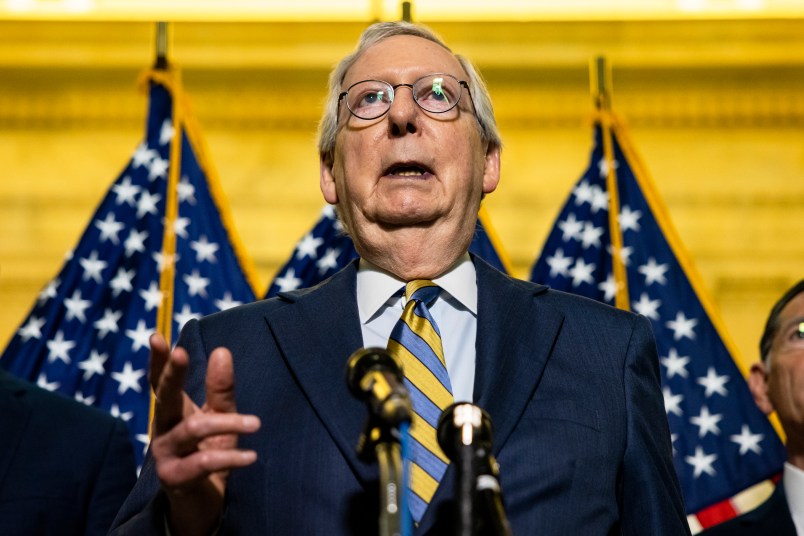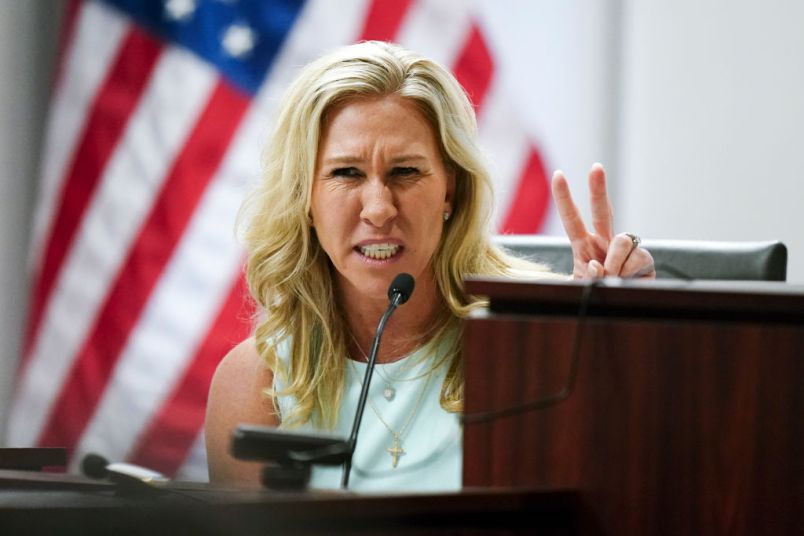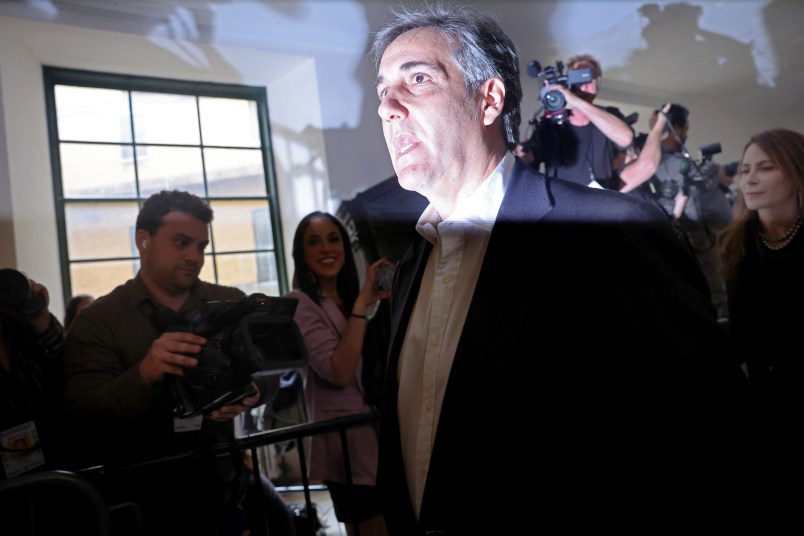Senate Minority Leader Mitch McConnell (R-KY) on Monday previewed what could become the latest iteration of his “no Supreme Court justices for Democratic presidents” rule.
In an interview with conservative radio personality Hugh Hewitt, the minority leader said that if Republicans regain the Senate majority in 2022, it’s “highly unlikely” he would allow Joe Biden to fill a Supreme Court vacancy that opened during the 2024 presidential election.
“I think in the middle of a presidential election, if you have a Senate of the opposite party of the president, you have to go back to the 1880s to find the last time a vacancy was filled,” McConnell said. “So I think it’s highly unlikely.”
Senate Minority Leader Mitch McConnell tells @hughhewitt he would not allow President Biden to fill a SCOTUS vacancy in 2024 if he is majority leader. pic.twitter.com/9gYAqXmyQD
— The Recount (@therecount) June 14, 2021
Hewitt pushed further — what about a forced 18-month vacancy?
“Again, if you were back as the Senate Republican Leader, and I hope you are, and a Democrat retires at the end of 2023, and there are 18 months, that would be the Anthony Kennedy precedent,” he said. “Would they get a fair shot at a hearing, not a radical, but a normal mainstream liberal?”
“Well, we’d have to wait and see what happens,” McConnell said.
The minority leader has spent several years alternately hindering judicial nominees during Barack Obama’s presidency and aggressively pursuing their confirmation during Donald Trump’s.
When the late Supreme Court Justice Antonin Scalia died in 2016, McConnell said that “The American people should have a voice in the selection of their next Supreme Court Justice” and therefore that the seat should remain vacant. For months, McConnell led the Republican refusal to consider Obama’s nominee, Merrick Garland, who was then chief judge in the U.S. Court of Appeals for the D.C. Circuit and is now the attorney general.
Then, in 2020, McConnell’s rules changed after the death of Justice Ruth Bader Ginsberg: It was fine for Donald Trump to fill that vacancy with just days to go before Election Day, he reasoned, because both the Senate and White House were in the current control of Republicans.
McConnell had been previewing the reversal for years, saying in 2018 that “who controls the Senate when you have a vacancy that close to an election makes a big difference.”
Though several Senate Republicans had said they wouldn’t consider a Supreme Court nominee from Trump that close to Election Day, given what they and McConnell had done with Garland’s nomination, in the end only one Republican — Sen. Susan Collins (R-ME) — voted against Trump nominee, and now Supreme Court justice, Amy Coney Barrett.
Days after Barrett’s confirmation last year, McConnell said the Republican Senate would continue filling judicial vacancies through January, regardless of who voters choose to take control of Congress and the White House for 2021.
In McConnell’s 2024 hypothetical on Monday, he applied the same logic as he did to push through Barrett with just weeks before a new administration.
“I don’t think either party, if it controlled — if it were different from the president, would confirm a Supreme Court nominee in the middle of a presidential election,” he said. “What was different in 2020 was we were of the same party as the president, and that’s why we went ahead with it.”










